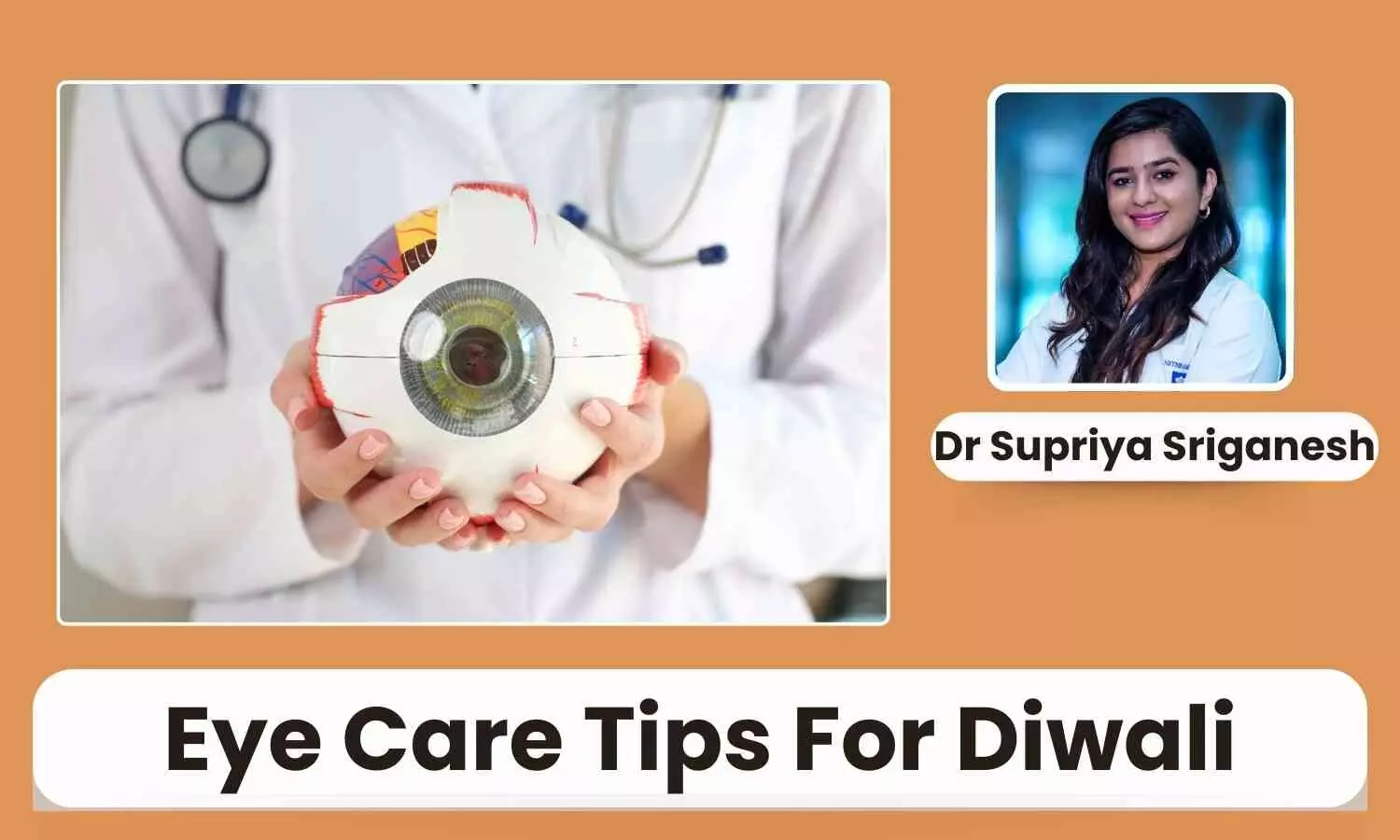Eye Care Tips for Safe Diwali: Expert Advice from Dr Supriya Sriganesh

As Diwali lights up homes and streets across India, eye care professionals urge the public to take precautions to prevent eye injuries and allergies due to firecrackers and smoke exposure.
Firecracker-related accidents often lead to eye injuries, with some cases resulting in permanent vision loss if not treated promptly. Dr Supriya Sriganesh, Phaco and Refractive Surgeon and Executive Director at Nethradhama Super Speciality Eye Hospital, shares crucial tips for eye safety during this festive season:
1. Maintain a Safe Distance
“Stay at least five metres away from firecrackers,” advises Dr Supriya. This distance helps reduce the risk of burns, corneal abrasions, and severe injuries that could lead to partial or complete blindness.
2. Wear Protective Eyewear
Using protective glasses can prevent injuries from sudden explosions or debris. Dr Supriya emphasizes that most injuries happen due to close-proximity blasts.
3. Avoid Holding Firecrackers
“Avoid holding firecrackers in your hand, as it increases the risk of fumes entering the eyes and causing irritation,” says Dr Supriya. This simple precaution can reduce the likelihood of immediate discomfort and subsequent complications.
4. Immediate Attention to Eye Injuries
Dr Supriya points out, “Delays in treatment can lead to complications, increasing the risk of vision loss.” She highlights that minor injuries may be treated with eye drops and antibiotics, but serious cases often require surgical intervention.
5. Hydrate and Use Lubricating Eye Drops
The smoke and particulate matter prevalent during Diwali can irritate the eyes, especially for those with dry eyes or allergies. Using lubricating eye drops can help keep the eyes hydrated and reduce irritation.
6. Avoid Rubbing Eyes
“Refrain from rubbing your eyes if they feel irritated due to smoke,” Dr Supriya advises, as rubbing can introduce infections and worsen irritation.
7. Ensure Clean Hands
Maintaining clean hands prevents potential eye infections caused by touching or rubbing the eyes after smoke exposure.
8. Use Air Purifiers Indoors
To enhance indoor air quality, especially during periods of high pollution, use air purifiers. This can reduce exposure to harmful particulate matter and improve eye comfort.
Dr Supriya underscores that simple precautions and awareness can prevent serious injuries and ensure a safe, joyous Diwali for everyone. If any injury occurs, visiting a specialist eye care centre promptly is crucial for proper treatment and recovery.


